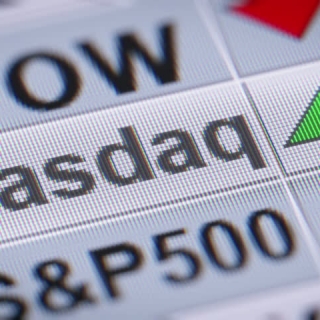


Stocks surged on Thursday, helped by strong gains in large-cap technology stocks, as investors continued to look for signs of progress on the global trade front.
The S&P 500 ended up 2.03% at 5,484.77, while the tech-heavy Nasdaq Composite gained 2.74% to end at 17,166.04. The Dow Jones Industrial Average lagged the other two indexes, weighed down by a 6.6% drop in IBM, but still rose 486.83 points, or 1.23%, to 40,093.40. It marked the blue-chip index's first close above the 40,000 threshold since April 15.
Nvidia, MetaTrader, Amazon, Tesla and Microsoft all closed higher, pushing the major averages to a third straight day of gains. Technology has been rocked recently as the White House's increasingly confrontational trade stance, particularly toward China, has dented sentiment in the sector.
China said overnight that no trade talks were taking place with the U.S., with Chinese Commerce Ministry spokesman He Yadong saying "all statements" about progress in bilateral talks should be put aside. He also called for the cancellation of "unilateral" tariffs.
The comments came after President Donald Trump said he was willing to take a less confrontational approach to trade talks with Beijing. Treasury Secretary Scott Bessent said Wednesday that the U.S. has a "chance for a great deal" on trade. Chinese imports are subject to U.S. tariffs of 145%.
With little progress in trade negotiations with China, Ross Mayfield, an investment analyst at Baird, was cautious about Thursday's price gains.
"I don't believe in this move," he told CNBC in an interview. "China was pretty clear last night that there are no negotiations going on. Maybe the market is still feeling reassured that at least the administration is talking about wanting to make a deal, rather than holding out and raising tariffs to unreasonable levels. Maybe there's still some optimism left over from yesterday."
Investors got some good news Thursday afternoon, however, when Treasury Secretary Scott Bessent said the Trump administration could reach "an agreement of understanding" on trade with South Korea "as early as next week."
The S&P 500 has fallen 3.3% since April 2, the day Trump announced his new policies on U.S. imports. Since then, the Dow has fallen 5.1%, while the Nasdaq has dropped 2.5%.
The major averages are now on pace to end the week in positive territory, which would mark the second positive week in three for all three indexes. (Newsmaker23)
Source: CNBC
Tested EN...
Asian stock markets weakened for the second consecutive day, indicating that the initial rally that had been "speedy" at the start of the year is starting to lose steam. At the same time, US governmen...
US stocks were mixed on Wednesday as investors weighed uneven economic data against expectations for eventual Federal Reserve easing, with the S&P 500 easing 0.2% and the Dow Jones sliding 0.8% fr...
European stocks were in mixed territory on Wednesday morning, as regional market jitters grow over U.S. President Donald Trump's threat to annex Greenland. The pan-European Stoxx 600 was little chang...
Asian stock markets weakened slightly on Wednesday after posting their best start to the year in history. The decline was driven by a decline in Japanese stocks amid escalating tensions with China. Th...
Oil prices stabilized on Thursday (February 12th), as the market reassigned a risk premium to US-Iran tensions despite US inventory data showing swelling domestic supplies. This movement confirms one thing: geopolitical headlines are still more...
Gold prices weakened slightly on Thursday (February 12th), as more solid US employment data reduced market confidence in an imminent Federal Reserve interest rate cut. The strong employment data prompted market participants to shift expectations of...
The Hang Seng Index reversed its downward trend in Hong Kong on Thursday (February 12th), weakening by around 0.9% to around 27,000 after a strong session earlier. This decline halted the momentum of the short term rally, as investors began to...